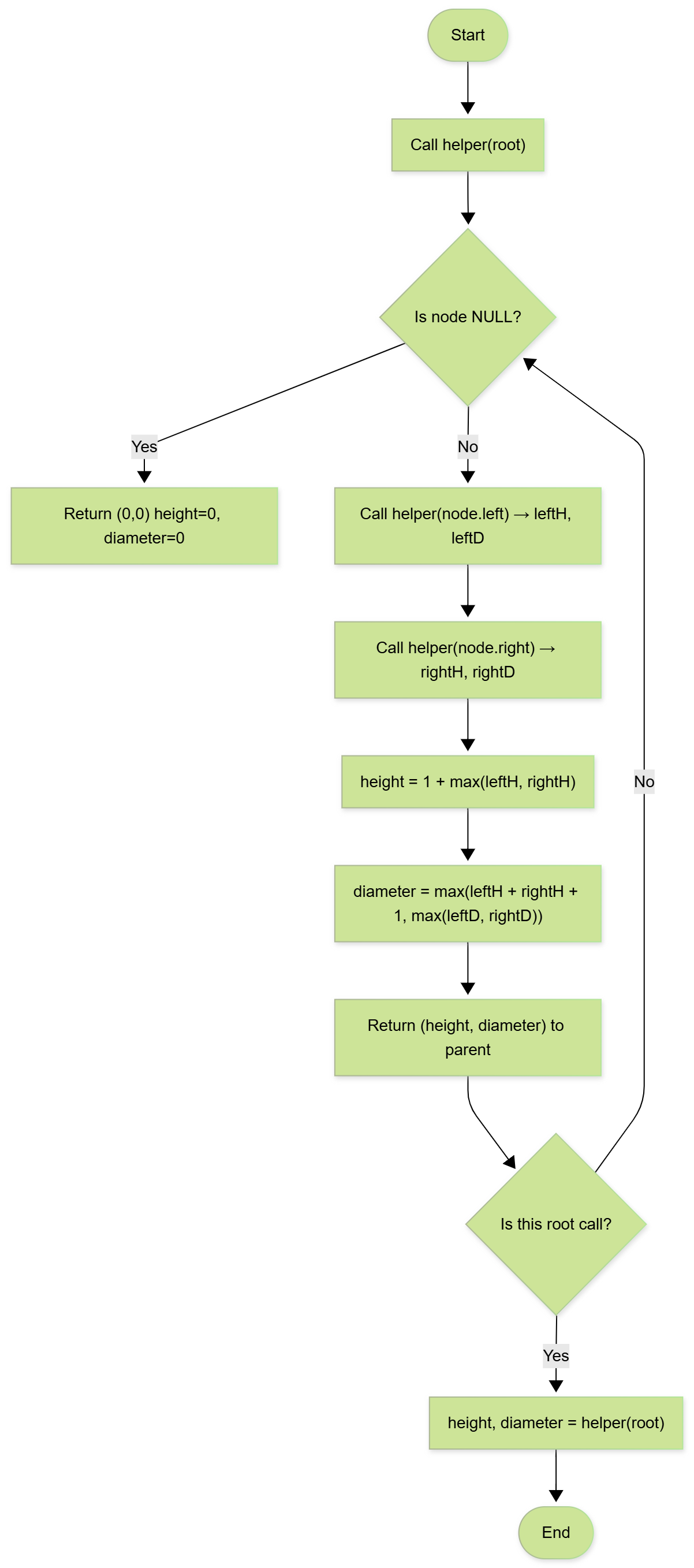Height & Diameter of Binary Tree
Problem Statement
Given the root of a binary tree, calculate:
1. Height: The number of nodes along the longest path
from root to leaf.
2. Diameter: The length of the longest path between
any two nodes.
Example:
1
/ \
2 3
/ \
4 5
Height = 3
Diameter = 4 (path: 4 → 2 → 1 → 3)
Approach 1: Height and Diameter Separately
Explanation: Compute height recursively for each node and calculate diameter as leftHeight + rightHeight + 1.
Time Complexity: O(n²) in worst case (recomputing heights)
Space Complexity: O(h) recursion stack
function height(node):
if node == NULL: return 0
return 1 + max(height(node.left), height(node.right))
function diameter(node):
if node == NULL: return 0
leftHeight = height(node.left)
rightHeight = height(node.right)
leftDia = diameter(node.left)
rightDia = diameter(node.right)
return max(leftHeight + rightHeight + 1, max(leftDia, rightDia))
💡 Think: Recompute heights per node; diameter is leftH + rightH (+1 if counting nodes).
Approach 2: Single Pass (Optimized)
Explanation: Return height along with diameter from a recursive function to avoid recomputation.
Time Complexity: O(n)
Space Complexity: O(h)
function helper(node):
if node == NULL: return (0,0) // (height, diameter)
leftH, leftD = helper(node.left)
rightH, rightD = helper(node.right)
height = 1 + max(leftH, rightH)
diameter = max(leftH + rightH + 1, max(leftD, rightD))
return (height, diameter)
height, diameter = helper(root)
💡 Think: Return (height, diameter) together so each node is processed once.
Approach 3: Iterative Using Postorder
Explanation: Use stack to traverse in postorder, storing height at each node to compute diameter iteratively.
Time Complexity: O(n)
Space Complexity: O(h)
stack = empty
mapHeight = {}
push root to stack
while stack not empty:
node = stack.top()
if node.left and node.left not in mapHeight:
push node.left
continue
if node.right and node.right not in mapHeight:
push node.right
continue
pop node
leftH = mapHeight.get(node.left,0)
rightH = mapHeight.get(node.right,0)
mapHeight[node] = 1 + max(leftH, rightH)
diameter = max(diameter, leftH + rightH + 1)
💡 Think: Postorder with stored heights; update best diameter at each pop.
